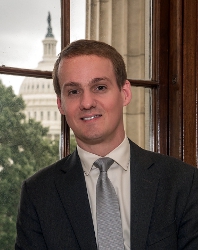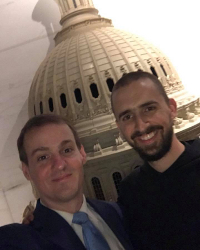- Home
-
About
 Fidelity & Excellence
Fidelity & ExcellenceThomas Aquinas College is unique among American colleges and universities, offering a faithfully Catholic education comprised entirely of the Great Books and classroom discussions.
-
A Liberating Education
 Truth Matters
Truth MattersTruth, and nothing less, sets men free; and because truth is both natural and supernatural, the College’s curriculum aims at both natural and divine wisdom.
-
A Catholic Life
 Under the Light of Faith
Under the Light of FaithThe intellectual tradition and moral teachings of the Catholic Church infuse the whole life of Thomas Aquinas College, illuminating the curriculum and the community alike.
-
Admission & Aid
 Is TAC Right for You?
Is TAC Right for You?Do you enjoy grappling with complex questions? Are you willing to engage in discussions about difficult concepts, with the truth as your ultimate goal?
-
Students & Parents
 Mind, Body & Spirit
Mind, Body & SpiritThere is always something to do at TAC — something worthwhile, something fulfilling, and something geared toward ever-greater spiritual and intellectual growth.
-
Alumni & Careers
 What Can You Do with a Liberal Education?
What Can You Do with a Liberal Education?Nothing speaks more to the versatility of the College’s academic program than the good that our alumni are doing throughout the Church and the world.
- Search
- Giving
Alumnus Attorney Brings Light of TAC to Senate Judiciary Committee

Last month James Layne (’08) — a graduate of the University of Notre Dame Law School and an attorney in Washington, D.C. — began a new position as counsel for Sen. Jeff Flake (R-Arizona) on the U.S. Senate Judiciary Committee.
“I and my colleagues on the committee staff are essentially the lawyers who represent and counsel our senators, especially on issues that fall under the committee’s jurisdiction,” he explains. “We study legislation that has been referred to the committee as well as analyze how this legislation would fit into the existing legal and policy framework, then recommend to the senator what action we advise him to take.” Counsel for the committee also aid senators in their oversight of the federal judiciary, vetting judicial nominees to the federal courts. Additionally, Mr. Layne assists the Subcommittee on Privacy, Technology and the Law, which Sen. Flake chairs. “Senators naturally desire to be informed on the role of technology and the privacy issues raised by the growth of new technologies,” he says. “I am excited and honored to work in this role, to help the committee consider these cutting-edge issues.”
For most of the five years since his graduation from law school, Mr. Layne has worked in private practice, but he does have some experience with the Judiciary Committee. “During my second year of law school, I was a law clerk for the committee, working for then-Sen. Tom Coburn of Oklahoma,” he notes. “This past experience is very helpful, since I already know some of the people I’m working with and have a basic understanding of how the committee works.”
When asked in what ways his Thomas Aquinas College education helped prepared him for his new job, Mr. Layne offered a heartfelt, expansive response, which is posted, in its entirety, below:
Looking Back at My Time at Thomas Aquinas College
by James Layne (’08)
I have often said that, next to my decision to become a Catholic, no decision I have ever made has been more important and formational than my decision to attend Thomas Aquinas College.
I didn’t have the typical start at TAC. I’ll never forget how excited I was to get the call from Admissions Director Jon Daly, telling me that I was moved off the waiting list and given a spot in the Class of 2008. It was already almost two weeks into the school year, but a spot opened up. As I recall, it was on a Wednesday or Thursday, and Jon told me that the last possible day I could start classes was that Monday! I didn’t know how it was possible to get everything ready that quickly, pack up, get my plane ticket, and move across the country from Virginia to California. It was exhausting.
When I got to the College, I was the new guy showing up after everyone else had formed their new friendships and bonds with their classmates. I worried that maybe I would have a hard time making friends and fitting in with the class. Instead, classmates and tutors one by one approached me and introduced themselves, offering to help me get caught up in all the classes. I immediately formed new friendships.
The most challenging thing for me was Euclid. I loved the material, but I didn’t love the idea of standing in front of the class and presenting a proposition, perhaps forgetting a step or forgetting the whole proposition entirely. The idea of messing up in front of a group was almost a phobia! I remembered how in high school I had dreaded public-speaking classes and how nervous I was speaking in front of a group. Imagine a shy lawyer!

Every member of my class, without exception, was an inspiration in how they welcomed me. I felt a bond at TAC that I never felt anywhere else. We weren’t just there to get our degrees. We were brothers and sisters pursuing the truth and exploring together the many tributaries and winding streams where the development of our understanding and culture had traveled into the ocean of Western civilization. Here I was, a poor boy from the Appalachians, reading Aristotle and St. Thomas, studying the great mathematicians, understanding ancient astronomical systems, and wondering about things I had always taken for granted: motion, number, knowledge, the soul.
This is what set TAC apart from anything else in my experience, and why it was so foundational for me. At TAC, I didn’t just come in and listen to a lecture about someone else’s conclusion. I came in as a participant in this vast intellectual tradition. The College challenged me to internalize the materials, since I had to be ready to talk about them and come to my own conclusions.
In law school, the Socratic Method is routine. You had better be ready to tear apart a text and not just regurgitate it, but be able to analyze it and think about how it fits in with other ideas as well. I can’t believe a better school could exist than Thomas Aquinas College in preparing one for these studies and for practically any career that requires critical thought. The great books are great for a reason. They ask the big questions. They cut through the mass of human experience and present ideas that at least attempt to harmonize or explain that experience.
When you read those materials day in and day out, it affects you in ways you may not realize. If you really wrestle with these ideas and critique them, you learn over time to ask big questions yourself, to cut through the mass of what’s before you, and to see the big ideas and outlines. That has been incredibly helpful to me at every step in my career, and those skills help me to be a better person and better citizen as well.
It isn’t enough, of course, to talk about knowledge or method or skills. Thomas Aquinas College isn’t just about knowledge or even how to think. “Seek ye first the Kingdom of God” is what the Scripture tells us. Thomas Aquinas College brought me closer to God, the Unum Necessarium.
I was amazed at how many liturgies the College had daily. Whether I was an early-morning person (which I am not) or an afternoon or evening person, liturgies and processions and Rosaries were happening all the time. Confessions were heard before and after Masses, and priests — very good and faithful priests, I might add — were part of our day-to-day lives. Having several priests for the student body was such a blessing. Whether it was going for a game or ice cream at Fr. Borden’s, chatting with Fr. Charles in Saints Peter and Paul Residence Hall, discussing the Dominican liturgy with Fr. Paul Raftery, serving Mass for Fr. Michael Perea, or listening to the mischievous jokes of Fr. Buckley, these are memories I treasure because these were great and faithful priests who were always there to show us friendship and offer us spiritual guidance.
I could thank so many people at Thomas Aquinas College for helping me get where I am, because they all had an impact on me, but I particularly want to thank Librarian Viltis Jatulis. I worked for her all four years in the gorgeous St. Bernardine of Siena Library. Briefly, the business office decided once to transfer me to the coffee shop, where I got about a week’s experience pulling espresso shots and making some of the strongest drip coffee in the College’s history before Viltis decided she wanted me back. And Viltis generally got what she wanted! She is a legend at TAC, and one of the most joyful and vibrant souls I have ever met. I learned valuable research skills while working there, and knowing one’s way around a library certainly is a good skill for a lawyer. So thank you, Viltis!
I also want to say thank you to the great people in the Development Department, whom I worked with for a couple of years after my graduation in 2008. I was there the day our beloved president, Tom Dillon, died in a car accident in Ireland. I rang the chapel bells and helped gather students to the new chapel Dr. Dillon had worked so hard to build, to hear the devastating news. Then I watched in the days and months ahead as, again, the TAC community came together and not only mourned, but lifted up Mrs. Dillon and Danny. I saw how the institution carried on, because as irreplaceable as Dr. Dillon was, the work was so important that it had to go on. I saw teamwork and perseverance in the midst of great personal sorrow and adversity, and you had better believe this has impacted me in my professional life.
Thomas Aquinas College has prepared me in so many ways that I don’t even have time or space, or adequacy of speech, to list them. It helped me to better know the good, the true, and the beautiful, and (which is perhaps even more important) helped me to desire these. TAC was a spiritual oasis for me. I think of it still as a part of home, since home is where the heart is. I think of its faculty and my classmates as family. I am extremely grateful to all of the friends, supporters, and benefactors of the College who made this possible for me. The gift you gave me is a light that I don’t intend to hide under a bushel.
I know that this light, to the extent it burns in such a one as me, is not mine and doesn’t come from anywhere inside me. It is God’s, and for His glory. It is an inheritance and gift. That light — and the pursuit of that light — burns brightly at Thomas Aquinas College. I pray so often that it will continue to burn brightly for generations of students, who will continue to better serve their communities, churches, and their country by forming themselves in the Catholic intellectual tradition.

